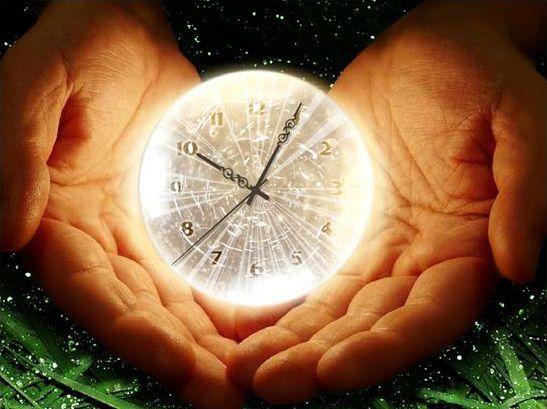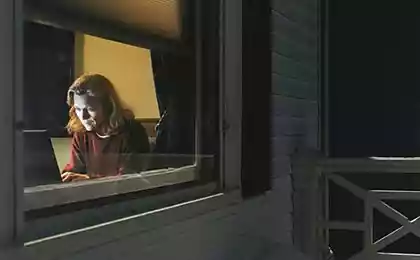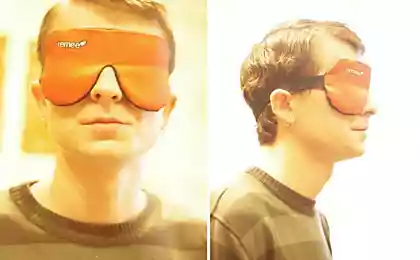1597
Polyphasic sleep. Can I save money?

An ordinary person sleeps about a third of his life - that is, given the average life expectancy, more than 25 years. This article is for those who pity to spend a lot of time sleeping.
We know that our entire body needs rest and recovery. Not long ago, researchers even found that sleep helps the brain to detoxify.
Most people hold the monophasic sleep, that is asleep at seven - eight hours every night.
But some (especially students and residents of many Latin American countries) sleep twice a day - five or six hours at night and 30-90 minutes during the day.
But in the history there were cases where people have been able to reduce the daily dose of up to two hours of sleep, lying down for a short time several times a day. Theoretically, such a regime can really save for twenty years waking life.
Before we move on to the story of specific people who have experienced the benefits of polyphasic sleep, I would like to tell our readers a warning formulated director of Sleep Disorders Clinic of the Massachusetts Matt Bianchi: "Every body is different. One person can come polyphase form of sleep, and the other as a result of such an experiment can fall asleep at the wheel and crashed into a pole ".
So if you decide to try to go to sleep polyphasic, we recommend that you temporarily give up driving, do not operate any heavy machinery, do not take crucial decisions - as long as you do not decide on how many hours you can specifically reduce the time of his dream .
Celebrities who practiced polyphasic sleep
Rumored to shorten his sleep, breaking it into several pieces, managed many famous thinkers, including Leonardo da Vinci, Thomas Edison and Nikola Tesla. However, most of the first documented cases of transition to polyphasic sleep is associated with the name of the architect, inventor and philosopher Buckminster Fuller.
Experiments with sleep Fuller spent in the mid 1900s and has developed a mode called "Dymaxion" (same name Fuller gave its brand, bringing together several inventions).
Appliances sleep "Dimaksiton" with half an hour of sleep every six hours - that is, on the day of about two hours. His experiments scientist outlined in the book, which was a resounding success. Fuller's ability to fall asleep within 30 seconds struck contemporaries. However, after some time the scientist has returned to normal monophasic sleep - but only because of his wife's nagging.
But be that as it may, the matter Fuller did not die, and the idea of polyphasic sleep there was a lot of fans and followers of.
In the 80s Italian neurologist Claudio Stampi also began to study the benefits of polyphasic sleep. He noticed that his fellow sailors used to sleep fitfully without much damage to health and side effects.
In the course of his experiments he examined the Swiss actor Francesco Jost, who was trying to master the technique of polyphasic sleep for 49 days at home. At first, the body Jost experienced a shock, but then its concentration of attention and mental state came in the relative rate, although at times it was hard to wake up. With minimal side effects actor managed to reduce the usual time of their sleep for five hours. However, it is in the short term - long-term effect has not been studied.
Today, enthusiasts from the internet also attempting to explore the possibilities of polyphasic sleep. The woman with the nickname PureDoxyk developed his own technique called Uberman, which consists of six phases of sleep no more than 30 minutes each: 2 pm, 6 pm, 10 pm, 2 am, 6 am and 10 am. Circle goes on for about three hours of sleep a day.
Specialist on personal development Steve Pavlina has mastered this technique and achieved impressive results. The most important problem, by his own admission, was boredom - and not difficulty concentrating or insomnia. He returned to normal life just because he wanted to spend more time with his wife and children.
The same PureDoxyk developed another mode polyphasic sleep, known as "Everyman" (ie, "Everyone"), which, according to its own statements, allowed her to carve out more time for hobbies, self-education and communication with his daughter.
What science says
One of the theories related to alternative modes of sleep, says that polyphasic sleep is generally more natural. The report 2007, published in the scientific journal Journal of Sleep Research says that many animals sleep several times a day and people are likely also in antiquity followed the same pattern.
It is known that most people dream lasts several hours and consists of alternating periods of slow-wave sleep (about 90 minutes) and short lengths of REM sleep. The exact purpose of this alternation we do not know. However, experts believe that the most likely different phases of sleep have different restorative effect on the body.
In this connection the question arises - Are proponents of polyphasic sleep is enough "REM sleep", and whether it at all.
Some practitioners' polifazniki "claim that their technique" forces "the body to enter REM sleep much faster. Indeed, in the course of experiments Stumpy noticed that sometimes the brain Jost entered REM sleep almost immediately. The scientist came to the conclusion that the lack of sleep the body adapts so as to recover in a shorter time.
Other proponents of polyphasic sleep assured that REM sleep is not something vital. Numerous studies have confirmed that the person suffers mainly from lack of sleep as a whole, rather than on the fast or slow wave sleep specifically. Other studies have shown that REM sleep plays a role to maintain learning ability, memory, and emotional state, but man, in principle, can live without it.
In addition, it is unknown how polyphasic sleep can affect the health and human life, if practiced constantly for his life.
In many cases, a person's ability to adhere to polyphasic sleep may depend on genetics. It is known that one to three percent of the population of the Earth naturally need very little sleep duration. This ability gives them mutated gene DEC2. Some proponents of polyphasic sleep assured that with the appropriate technology can convince your brain that you belong to this small group of people.
According to a recent discovery, before the invention of electricity people slept twice a day: went after sunset and slept till midnight, then woke up a couple of hours and go to sleep again until the morning. But anyway total output 7 or 8 hours.
Perhaps in the future we will return to the old system.
source code Your text to link ...























